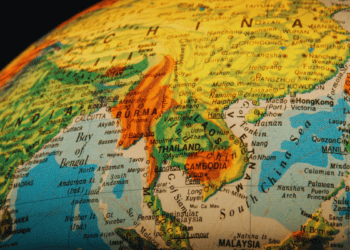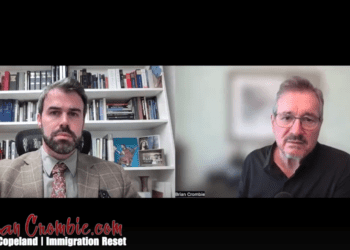October 13, 2012 – According to MLI’s Brian Lee Crowley, the award of the Nobel Prize to the EU tells us a lot more about who is giving the prize than it does about the worthiness of the recipient. In his latest column for the Ottawa Citizen, Calgary Herald and Vancouver Sun, he says, “Prizes are meant to be awarded for performance, not for potential, for results, not effort.” He adds, “We don’t give the prize to those we expected to win. We give it to those who did win.” Read his full column below:
EU Prize says much about Nobel committee
By Brian Lee Crowley, Ottawa Citizen, October 13, 2012
My mother could have told you why giving the Nobel Peace Prize to the European Union would produce such a predictable and deserved outpouring of derision.
An aspiring writer, she took a creative writing course. One of the assignments was to describe a single person from the perspective of several others. She roped me in by asking me to describe what I thought of my elementary school principal. How did the principal look, my mother asked.
Not too bad for someone who is a hundred years old or whatever she is, I replied.
Her teacher’s response? This told the reader a lot more about me than it did about my principal, which wasn’t the point of the exercise.
The award of the Nobel Prize to the EU likewise tells us a lot more about who is giving the prize than it does about the worthiness of the recipient.
For those of you who are hazy about how the Peace prize is awarded, the rules were established under the will of Alfred Nobel, a Swedish industrialist who made a fortune selling things like explosives. Perhaps he had a guilty conscience. Be that as it may, he gave the job of awarding the Peace Prize (as distinct from Nobels for, say, medicine or physics) to a committee chosen by the Norwegian parliament.
What was the prize to be for? According to Norwegian lawyer Fredrik Heffermehl, who has studied Nobel’s will and intentions, “this is not a prize for peace but a prize for champions of peace.”
So with that in mind, before we get to the EU as this year’s recipient, let’s think about their award of the prize a couple of years ago to freshly elected U.S. president Barack Obama. As was widely said at the time, he won the prize, not for being Nobel’s “champion of peace,” for he had no track record, no evidence to show that he actually had the ability, or the knowledge or the drive or the character to be a champion of peace. He got the prize because the committee was thrilled he was not George W. Bush.
Memo to the Nobel Peace Prize Committee: There is a price to be paid for awarding the prizes before the race is run, let alone won.
Prizes are meant to be awarded for performance, not for potential, for results, not effort. Top-seeded players in tennis are occasionally beaten by obscure unseeded opponents, and much-hyped Olympic hopefuls sometimes choke in the event.
We don’t give the prize to those we expected to win. We give it to those who did win. And now that we can actually examine Obama’s record, we see that he has continued many of the policies for which the critics (including the Norwegians) excoriated his predecessor. Guantanamo is still open. He (rightly) sends armed squads without permission into sovereign countries to kill terrorists. He makes more generous use of unmanned drones to rain fire down on both the guilty and the innocent, chiefly in the Muslim world. His peace overtures to the Muslim world lie in tatters in the wake of the highly organized terrorist attacks that caused the death of an ambassador and several other diplomats. It is now crystal clear that there are deep differences of philosophy, history and interest between America and powerful forces in the Muslim world, Russia, China and lots of other places, and a more sympathetic face at the helm in Washington is largely irrelevant. More than pretty talk is needed to be a champion of peace, and so Obama has little to show to justify his Nobel.
Is the European Union, this year’s recipient, a more worthy champion of peace? Yes, while the EU has existed there has been peace between France and Germany, the longtime rivals whose conflicts repeatedly dragged the continent and the world into armed conflict. But is this thanks to the EU?
After 1945 Germany engaged in much soul-searching and made itself profoundly resistant to war. Germany might be a worthy recipient of the prize for this self-transmogrification. The EU did not cause it but was its beneficiary. Moreover for decades Germany, France and the West generally faced in the Soviet Union a formidable and determined adversary. It was our collective determination to face down Soviet aggression that created a long era of peace. NATO and the (now defunct) Warsaw Pact are therefore far more plausible Nobel candidates than the EU. But they were associated in the minds of Norwegian parliamentarians with that nasty Cold War, whereas the EU is warm, cuddly and pretty inoffensive — unless you happen to be a Greek protesting against German-inspired austerity or a Turkish aspirant to EU membership constantly rebuffed by anti-Muslim politicians.
Too bad that’s not what Alfred Nobel wanted to honour and why the Nobel Peace Prize is slipping into undeserved irrelevance.
Brian Lee Crowley is managing director of the Macdonald-Laurier Institute, an independent non-partisan public policy think tank in Ottawa: macdonaldlaurier.ca. @MLInstitute
Copyright (c) The Ottawa Citizen




